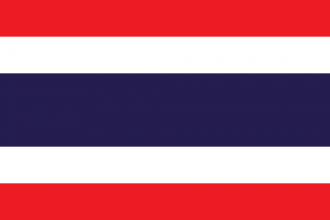According to Thai authorities, defence industry is one of the sectors that could be further developed in order to both boost national stability and the nation’s economy. The Defence Technology Institute (DTI) will lead the efforts of the Thai government for modernising the local defence industry. The objective is to locally design and develop new weapon systems and to link these with commercial opportunities, as well as with the needs of the local armed forces. Towards this direction, DTI carried out more than 20 Research and Development projects in 2015. Additionally, Thai authorities have repeatedly invited private sector entities to participate in the state-sponsored efforts to localize the development and sourcing of military equipment.
Today, Thailand has several companies that provide products and/or services to the defence industry. Marsun Company Limited, a shipyard located near Bangkok, at Samutprakarn, is one of them. Marsun has delivered over 260 various types of vessels, including Fast Patrol Craft, Fast Attack Missile Craft, Crew and Supply Vessels, Ferries, Motor Yachts, Oil Spill Recovery Vessels and Multi-Purpose Craft. Another shipbuilding company, is the Bangkok Dock Company Limited, which operates as a state enterprise, under the oversight of the Royal Thai Navy and has a similar product offering to that of Marsun.
Additionally, several Thai companies provide Maintenance, Repair and Overhaul (MRO) services, as the country’s strategic location in the ASEAN Economic Community (AEC) region, provides a great opportunity for the development of the MRO industry in the country. Additionally, several foreign investors, such as Airbus, Boeing, Weston Aviation, Saab Thailand, Chromalloy, and Triumph Aviation Services has already invested in the country’s MRO industry. According to the Office of Transport and Traffic Policy and Planning (OTP), Ministry of Transport, MRO expenses in the Asia Pacific region in the decade 2015-2024 will reach about 167 billion US dollars. Thailand is expected to capture 10.6 billion US dollars from this market.
Thai Aviation Industries (TAI) and THAI’s (Thai Airways International Public Company Limited) Maintenance Centre are the most noteworthy of them. TAI is the country’s military aircraft repair and maintenance service centre. The government approved TAI’s establishment on 23 September 2003, while TAI started operating on 29 January 2004. THAI’s Maintenance Centre provides a full range of maintenance services including certified Heavy Maintenance (D-checks) or complete aircraft overhaul, for a big variety of civil aircraft, including B747, B777, A330B4, A310, A300-600, A330, B737, ATR42, ATR72 and BAE146.
Finally, AVIA Group was established in 1992 and is one of the few Thai companies to place high importance in the R&D of electronic defence products. Avia Group, develops among others, telecommunications, air-traffic management and military surveillance systems and solutions, including a UAV model.
In order to further enhance the technological level of the local defence industry, Thai authorities have promoted the creation of cooperative schemes with foreign partners. Under this context, Saab has entered into a joint venture with AVIA Group. More on that, in conjunction with the previously indicated sales to the country, Saab has agreed to transfer 100 man-years of advanced aerospace technologies to Thailand, with the aim to boost local aerospace and defence capabilities, through long-term partnerships with local companies and institutions. The transfer will also provide access for the local industry, in future development programs, including the Gripen.
Additionally, Honeywell is present in Thailand for more than 20 years. Since 1987, Honeywell Systems (Thailand) has been providing local customers with automation and control systems and solutions, performance material technologies and aerospace products and systems. Currently, the US based company, has three subsidiaries in the country: Honeywell Systems (Thailand) based in Bangkok and Rayong, Honeywell Electronic Material (Thailand) based in Chonburi and Honeywell Holdings Thailand, employing more than 400 employees.
Moreover the electronics arm of Singapore Technologies Engineering Ltd (ST Engineering), in November of 2013, has set up within the country, a wholly owned subsidiary, namely ST Electronics (Thailand) Limited, with a paid up capital of Thai Baht 120,000,000 (about US $4.8m). ST Electronics (Thailand) provides transportation and advanced electronics solutions.
Finally, in January of 2016, BAE SYSTEMS signed a new contract with Bangkok Dock to assist in the licensed construction of a 90 metre OPV. Under the agreement BAE SYSTEMS will provide engineering support and advice during construction of the vessel in Thailand.

